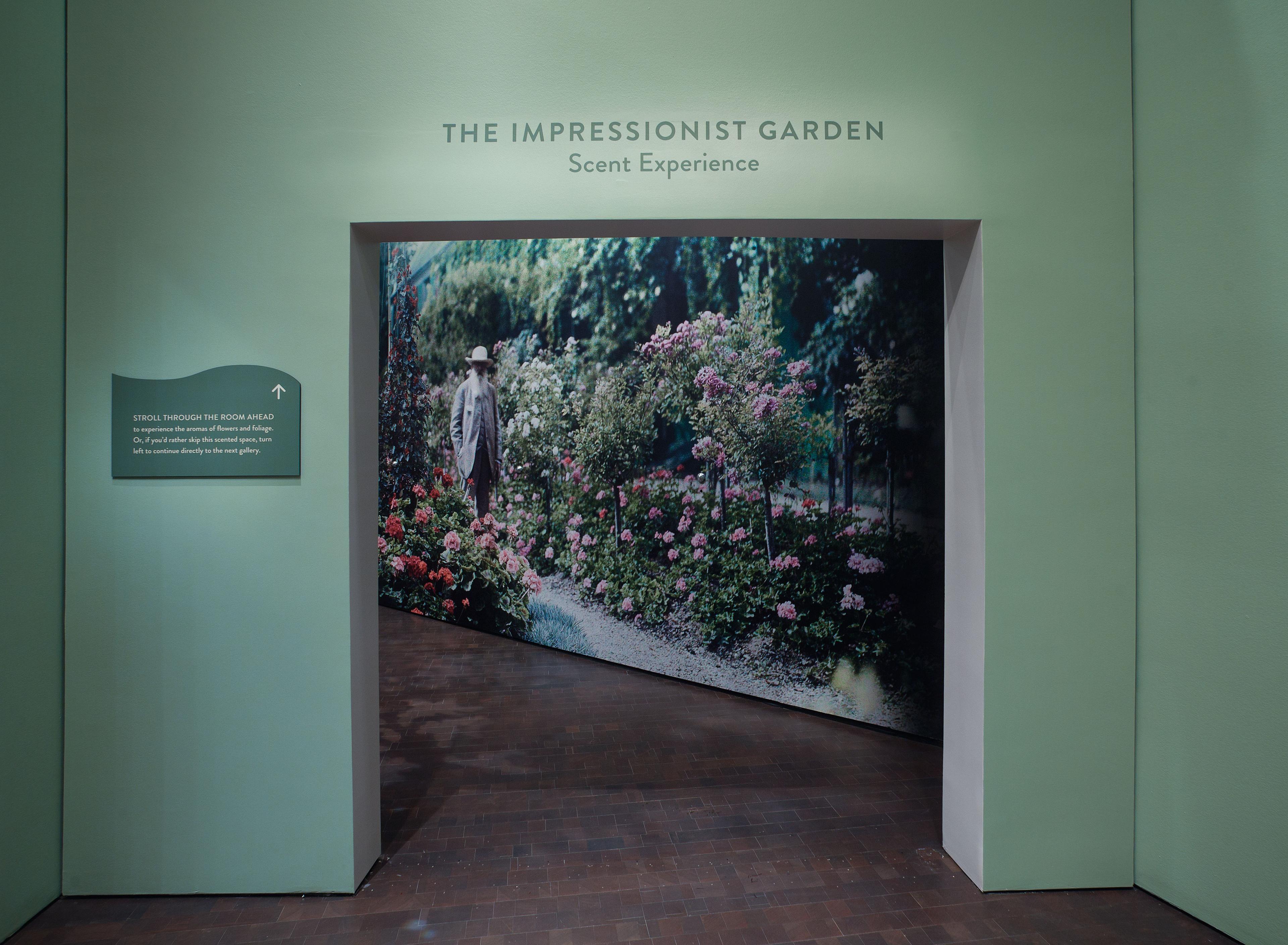
If you ask most people to describe art you'd find at a museum, they'll likely talk about paintings and sculptures. Those engage our sense of sight. But could art also play on our sense of smell? The Denver Art Museum answers this question in its current exhibition, "In Bloom: Painting Flowers in the Age of Impressionism." It uses fragrance to transport people to famous Impressionist painter Claude Monet's garden at Giverny in northern France.
DAM worked with Boulder perfumer Dawn Spencer Hurwitz, who is also a painter, to create a "scent experience" within the show. It's a separate room in the exhibition that runs now through Oct. 11.
Spencer Hurwitz spoke with Colorado Matters host Ryan Warner. Highlights from the conversation are below. Click the audio above to hear the full interview.
Spencer Hurwitz on her scent installation at DAM
"It's a very high-tech, impressive kind of olfactory diffuser made for the museum setting... It's a device that's sensor driven, so as people walk by it exudes some aroma so that it's not constantly sending the scent out all the time... The idea -- the way it was designed -- is so you would have pockets and places [of certain scents] just as if you were walking through a real garden, where you might encounter a stronger aroma of this flower or that flower."
On how she knows a fragrance is finished
"I consider a perfume finished when it smells like itself -- it's a stand-alone aroma. Anyone would know Chanel No. 5 if they know perfume. Anyone would know Shalimar. These are great master pieces, but they smell like themselves and you can refer to other perfumes as smelling like them. So I'm always looking to design something that comes together, feels harmonious and smells like the story I'm trying to tell."
On the "poetry" of perfume
"Every note, or every aromatic that you're working with, imagine it like a word. You learn a language, and eventually you like to make poetry -- scent poetry. So this word fits or no that word doesn't fit with this story I'm creating."
*"The Impressionist Garden" is a separate room within the museum's exhibition. The scents stay contained in the room and don't linger on visitors who walk through the installation.
More:









